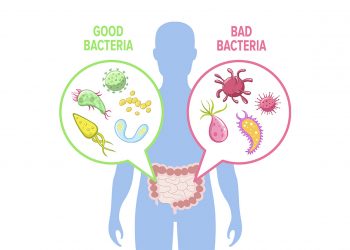Demystifying food intolerances, allergies and sensitivities
Food intolerances, allergies and sensitivities
Food intolerance, food sensitivity and food allergy are all facets of a complex reality that is attracting increasing attention. While these terms are often used interchangeably, it is crucial to understand the distinctions between them if we are to better understand modern nutritional challenges. This article will delve into the intricacies of the food intolerance influx, while highlighting the subtle differences between food sensitivity, intolerance and allergy. By exploring diagnostic advances, changing dietary habits and environmental factors, we will attempt to demystify this growing complexity and provide essential insights into these varied dietary reactions that are shaping our contemporary understanding of nutrition.
Food sensitivity
Food sensitivity, often poorly understood, encompasses a range of non-immunological reactions of the body to certain foods. It is important to note that food sensitivity differs from food intolerance, usually referring to digestive problems, and also from food allergy in that it does not involve an immune response. Food sensitivity is a broader term that encompasses a range of adverse reactions to food, often characterised by symptoms such as headaches, gastrointestinal problems, fatigue or skin disorders. The foods likely to cause food sensitisation vary from person to person, as food sensitivity is an individual response. However, certain types of food are more frequently associated with sensitivities:
- Dairy: The lactose in milk and dairy products can be difficult to digest for some people, particularly those with lactose sensitivity.
- Gluten: Gluten, a protein found in wheat, spelt, barley and rye, can be a source of sensitivity for some people, even in the absence of coeliac disease.
- Eggs: Some individuals may be sensitive to the proteins present in eggs, which can cause gastrointestinal or skin reactions.
- Soya: Soya is a common source of food sensitivity. Some people may react to soya proteins.
- Seafood: Seafood, particularly shellfish, can trigger sensitivities in some people.
- Peanuts and nuts: Peanuts and nuts, such as walnuts, almonds and cashews, are often associated with sensitivities.
- Sulphites: Some individuals may be sensitive to sulphites, which are used as preservatives in certain foods and drinks, such as wines and dried fruit.
- Food additives: Certain food additives, such as colours, preservatives and artificial sweeteners, can cause sensitivities in some people.
Food intolerance

Food intolerance is the body’s reaction to certain foods. It is usually linked to digestive problems and often results from the inability of the digestive system to break down or assimilate certain food components. In general, food intolerance can be managed, but it is important to note that this depends on the specific type of intolerance and its underlying cause. Unlike food allergies, which involve an immune reaction that can sometimes be serious or even fatal, food intolerances are often linked to digestive and metabolic problems.
Here are a few more details on known food intolerances:
- Lactose intolerance :
- Cause: Caused by a deficiency in lactase, the enzyme needed to digest lactose, the milk sugar.
- Symptoms: Bloating, gas, diarrhoea, abdominal cramps after eating dairy products.
- Gluten intolerance :
- Cause: Generally linked to a reaction to the gluten proteins present in wheat, spelt, barley and rye.
- Symptoms: Gastrointestinal problems, fatigue, headaches after eating foods containing gluten.
- Intolerance to FODMAPs :
- Cause: certain fermentable carbohydrates (fructose, oligosaccharides, disaccharides, monosaccharides, polyols) may not be well absorbed in the intestine.
- Symptoms: bloating, gas, diarrhoea, constipation, abdominal pain.
- Histamine intolerance :
- Cause: a disorder in the metabolism of histamine, a chemical substance naturally present in certain foods.
- Symptoms: redness, itching, headaches, digestive problems after eating foods rich in histamine.
- Sulphite intolerance:
- Cause: Some individuals cannot effectively metabolise sulphites, which are additives used in certain foods and drinks.
- Symptoms: Respiratory problems, headaches, skin rashes.
Food allergy, when immunity becomes a challenge
Food allergies are reactions of the immune system to specific proteins present in certain foods, which can trigger symptoms ranging from skin rashes to anaphylactic shock.
They result from an inappropriate immune response to specific food proteins, generally found in common foods such as peanuts, eggs, milk, soya, wheat, fish and nuts.
When an allergic person is exposed to the allergen, the immune system releases chemicals, such as histamine, causing a variety of symptoms.
Symptoms can range from mild to moderate, such as redness, rash, itching, swelling, runny nose and sneezing, to severe reactions, including difficulty breathing, throat swelling, low blood pressure and anaphylactic shock.
The main way to manage food allergies is to strictly avoid the trigger foods.
Some food allergies, such as those to milk or eggs, can disappear over time in some children. However, food allergies such as those to peanuts, nuts and seafood tend to persist into adulthood.
In conclusion, this article offers an overview of the current challenges associated with food intolerance, by clarifying the nuances between sensitivity, intolerance and allergy. By understanding these distinctions, it becomes possible to better address these dietary reactions and formulate more personalised nutritional approaches for optimal health. Demystifying these complexities is essential for navigating the contemporary nutritional landscape.
How to manage a healthy, balanced diet
Managing a healthy, balanced diet can be difficult when you have food intolerances, sensitivities or even allergies. Meal delivery services like Allcook kitchen make things easier. Allcook is a real game-changer: customers can compose their menu excluding allergens and even set up an allergen-free algorithm for future orders.





